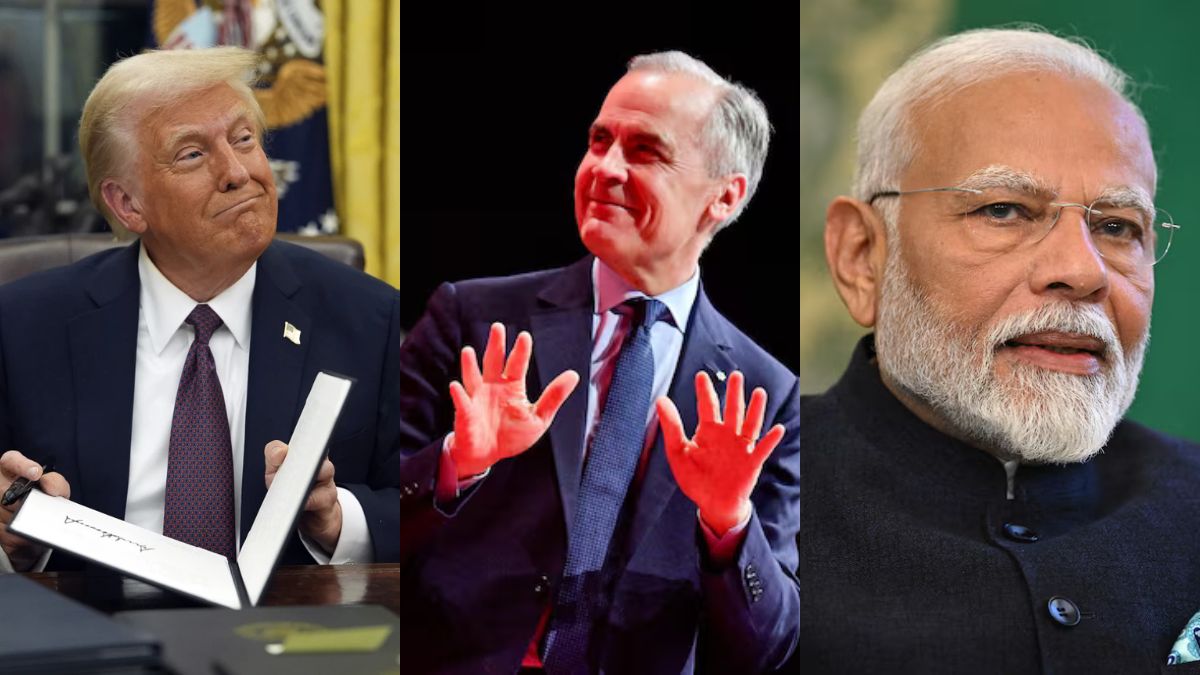G7 summit kicks off: US-Canada tensions likely amid Modi's attendance and calls to end Israel-Iran conflict

The Group of Seven (G7) nations will gather in the Kananaskis district of Alberta, Canada on Sunday, amid tensions with the United States over foreign policy, trade and the Israel-Iran conflict. The summit is scheduled to take place from Sunday to Tuesday.
Although host nation Canada's Prime Minister Mark Carney's stated priority is to strengthen peace and security, improving the flow of critical minerals, and creating jobs, clashes with US President Donald Trump are highly likely.
ALSO READ | Israel-Iran conflict to be ended soon, just like 'India and Pakistan': US President Donald Trump
The two leaders do not see eye to eye on the anti-ICE protests and US tariffs, with America's role in the Israel-Iran and Russia-Ukraine conflicts set to complicate talks.
Indian Prime Minister Narendra Modi has also been invited to the summit, despite pressure from Canada's Liberal-headed opposition.
Modi arrived in the Republic of Cyprus on Sunday as a part of a three-nation visit focused on the potential role the island could play in linking India to Europe via a trade corridor and countering Istanbul's alignment with Pakistan—also since Northern Cyprus, once part of a Cypriot nation with the Republic of Cyprus, is a de facto territory managed by Türkiye.
Modi will visit Canada next, followed by Croatia.
India has been pursuing the India-Middle East-Europe Corridor (IMEC) trade link by sea and rail, amid a rapidly escalating crisis in the Middle East.
New Delhi is also expected to present its concerns regarding the Israel-Iran conflict at the G7 summit, although its primary agenda will be a reset of ties with Ottawa, after the Khalistan issue during Trudeau's incumbency saw both sides retracting diplomatic personnel.
ALSO READ | An opportunity to galvanize global understanding on tackling terrorism: PM Modi on his three-nation tour
German Chancellor Friedrich Merz on Sunday has also called for an end to the Iran-Israel conflict, urging that a nuclear agreement could be reached on four points at the G7 summit.
These four points are related to Tehran's nuclear disarmament, ending the conflict by establishing diplomatic channels, and clarifying Tel Aviv's right to defend itself against existential threats—despite the European Union's stance on Israel's conflict with Gaza.
Trump versus Carney?
"This will be a successful meeting if Donald Trump doesn't have an eruption that disrupts the entire gathering. Anything above and beyond that is gravy," said University of Ottawa international affairs professor Roland Paris, who was foreign policy adviser to Trudeau, a Reuters report said.
Paris had been referring to Trump's shock exit from the summit after denouncing Carney's predecessor Justin Trudeau as "very dishonest and weak" and instructing the US delegation to withdraw its approval of the final communique.
Carney, who has also clashed with Trump over the latter's idea on annexing Canada, which has urged Washington to lift its tariffs on steel and aluminium, warned of pushback if he failed to do so.
World